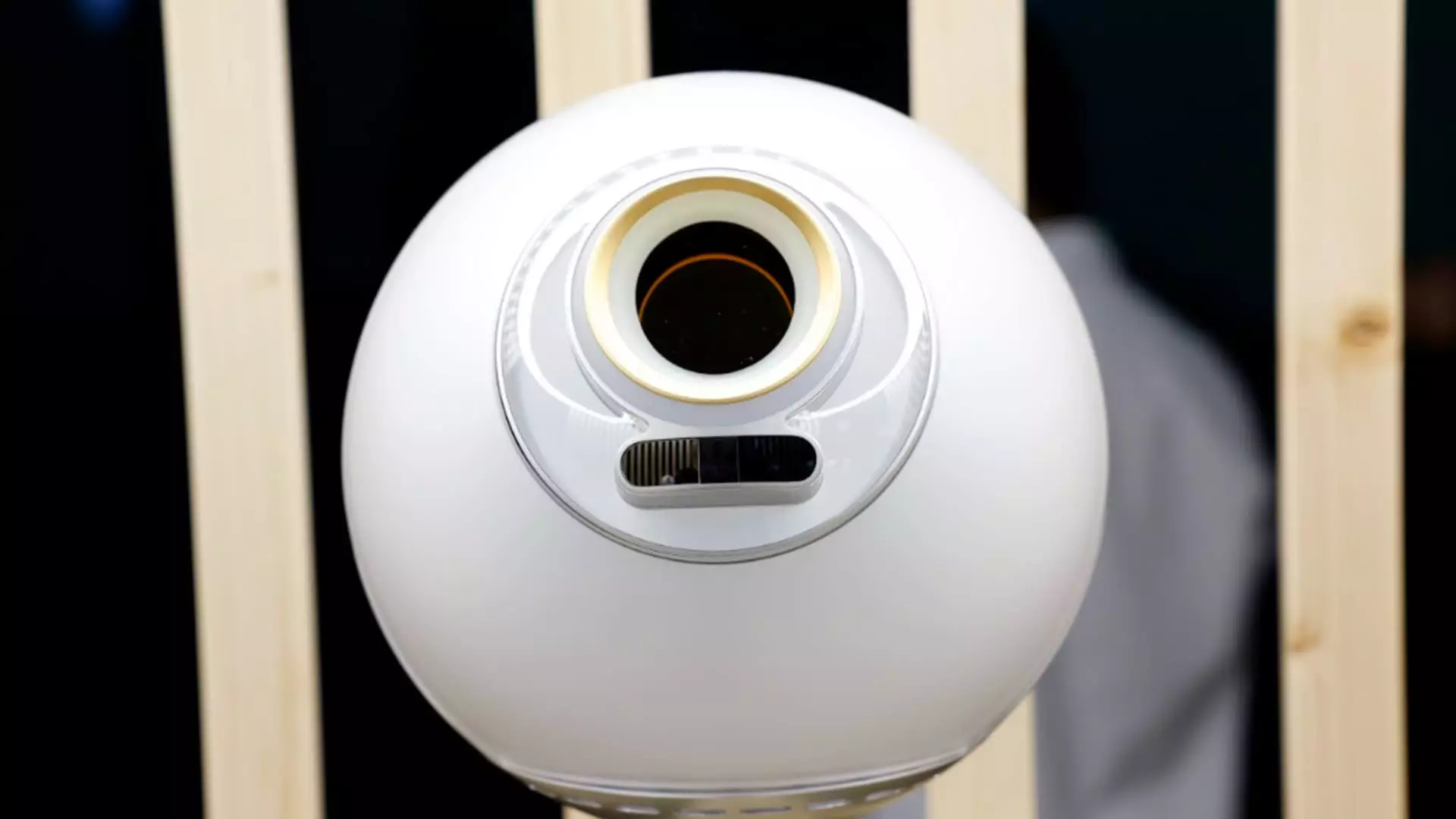In an ambitious move that has captured global attention, World, the biometric identity verification initiative co-founded by OpenAI CEO Sam Altman, is making its debut in the UK. This groundbreaking project uses a unique eye-scanning device termed the Orb to authenticate human identity. Set to commence operations this week in London, the deployment is poised to expand into several other major cities—Manchester, Birmingham, Cardiff, Belfast, and Glasgow—in the coming months. This venture fundamentally intersects the growing concerns about identity fraud, especially in an era where artificial intelligence capabilities are on a meteoric rise.
Arguably, the essence of the World project transcends mere innovation. It actively targets the issue of fraudulent activities exacerbated by advanced AI systems like deepfakes. By scanning not just faces but also irises, the technology generates unique identifiers to confirm an individual’s humanity. Upon successful verification, users receive WLD cryptocurrency along with an anonymous identifier—World ID—enabling them to securely access a variety of online platforms. Currently, major apps like Minecraft and Discord have already embraced this technology. With World aiming to establish a ‘real’ network from what was previously considered a mere ‘science project,’ it is indeed catalyzing a shift in identity verification.
Addressing Urgent Concerns in the AI Landscape
As promising as the technology sounds, it isn’t without its critical scrutiny, especially regarding privacy rights. In a landscape dominated by data breaches and surveillance concerns, any biometric initiative generates skepticism. Adrian Ludwig, the chief architect of Tools for Humanity, emphasizes that they encrypt biometric data before deleting it, which is indeed a necessary step to safeguard user data. However, it raises a pivotal question: can we trust that this data will remain secure, especially as the user base skyrockets from a mere 13 million?
The crux of the matter is the balance between security and privacy. With the project connected to a network of third-party providers for identity verification, one can’t help but wonder whether the decentralized model can meet the myriad privacy concerns more traditional networks grapple with. In an increasingly interconnected digital landscape, the necessity for stringent measures grows more critical, yet the challenge of maintaining personal privacy amidst expansive data mining persists.
Potential Impact on Governance and Society
Beyond the technological nuances, World carries the potential to redefine the relationship between citizens and their governments. As various entities look to digitize identification systems, tools like World may serve as frameworks for nations eager to modernize while simultaneously tackling rampant identity fraud. However, it’s also essential to scrutinize the social implications.
Take India’s Aadhaar system, for instance. Though widely adopted, it has not escaped criticism for its security vulnerabilities and the exacerbation of social inequality. In light of this, an emergent question arises: can World truly offer a more equitable and secure solution, or will it merely perpetuate existing disparities? As Ludwig asserts, numerous governments express interest in using the technology to fortify their identity infrastructure, but that requires precision and a commitment to safeguarding public welfare.
Regulatory Hurdles and Trust Building
The conversation around World is incomplete without addressing the regulatory challenges it faces. Discussions with regulatory bodies such as the Information Commissioner’s Office in the UK have been ongoing, but they merely scratch the surface of a complex ecosystem. The public requires reassurance—how do we navigate the minefield of potential risks associated with digital identity verification? As of now, World claims to have developed solutions to these concerns. Yet users and stakeholders alike may remain apprehensive until robust frameworks are put in place.
Moreover, public trust hinges on transparency. It is critical that World slow down and carefully consider its approach to public engagement and dialogue. Users are rightfully concerned about the implications of every forced biometric verification system aimed at fighting fraud. The balance of convenience and security requires judicious navigation to avoid becoming merely another tool for tyranny disguised as a safeguard.
The Future of Digital Identity Systems
As we stand at the crossroads of technological advancement and ethical responsibilities, World confronts an essential paradigm shift in how identities are verified and secured. With artificial intelligence evolving at an astonishing pace, it is imperative that any entity entering this space does so with caution, empowered by knowledge of the broader societal ramifications. The effectiveness of biometric systems like World will depend not only on their technological capabilities but also on the ethical and transparent management of user data.
Undoubtedly, Altman’s drive to innovate and improve digital identities could herald a beneficial shift in the tech landscape. However, it is equally crucial to critique and oversee these advancements, ensuring they do not become tools for further marginalization or privacy violations. The path ahead is riddled with potential—not just for remarkable innovation, but also for significant ethical missteps if we are not vigilant.

